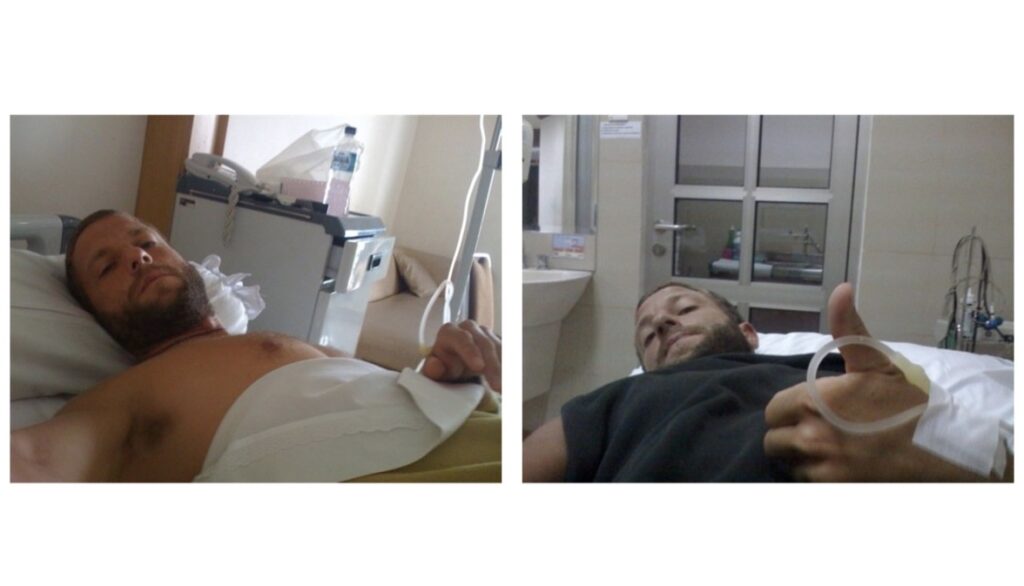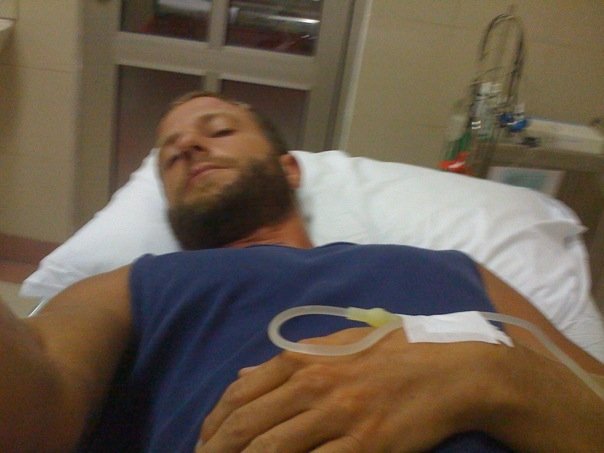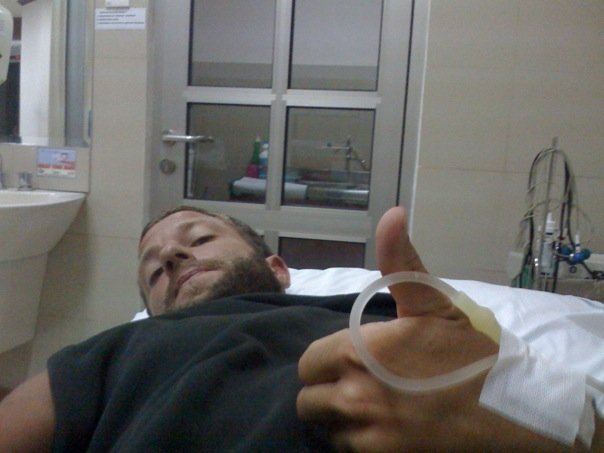#blog15

Dengue fever information for surfers and travelers
Winter time is often the travel time when you are drawn to tropical areas such as Bali, Costa Rica, Sri Lanka etc. Me too and that’s why I would like to address the topic of the tropical disease “Dengue” in this blog entry. You’ve probably heard of it before, but as far as I know, very few people have really thought about it before their trip. For what reason, since it is often kept secret or kept secret. Otherwise it certainly wouldn’t be so good for tourism. Especially in Bali.
Dengue fever is a disease that is transmitted mainly in the tropics through the bite of the so-called “tiger mosquito” (female – Aedes mosquito). The main distribution areas include Southeast Asia, Central Africa, India, Latin America and BALI.
If a person is infected, the tiger mosquito absorbs the virus when it bites and transmits it to its next victim when it next sucks blood. This of course results in a rapid spread in the region, since a mosquito doesn’t just suck once. What makes this even more difficult is that the tiger mosquito is not only active at night, but especially during the day. An inbubation period lasts from three to 14 days. In my experience, only three before the first signs appear.
The illness often manifests itself like the signs of a severe flu. Fever (up to 40 C) with chills and severe headaches and body aches. You just feel weak and can hardly get out of bed. weight loss. No appetite.

From the outbreak, the process takes about 12 days. You can still go to your own premises for the first 7 days, but you should go to the treating doctor every day for blood tests and check-ups. Day 8 – 11 in the hospital on the drip and from day 12 things slowly start to look up again.
There are 4 different types of dengue spread around the world. If you’ve had one of these, you’re probably more or less immune to it. But if it hits you a second time, your body will react in a much more extreme way. Internal bleeding may occur, even leading to nipping. The consequences are devastating.
You can’t really protect yourself. The suggestion of wearing long clothes is difficult in the tropics, as there is definitely no one walking around wearing a mask. As already mentioned, the tiger mosquito is also active during the day. It can happen to you at any time. Apparently there has been a vaccine since 2015 that is 93% effective. But this is probably not yet completed.
Follow-up examinations at a tropical institute (Düsseldorf is very good) are mandatory, especially since an infection must be reported. Blood donation and the like are no longer possible after infection. When I observe dengue, I always notice that there is little to no reporting about it. This not at all harmless infection is present almost every day. I know a few travelers who have been affected by it and when you are in the tropics for a long time, you naturally experience a lot when you are in need of care. In 2016, Bali was so infested that hospitals were no longer able to accept more people. There were really infested regions that should be avoided.
My dengue story:
It’s the year 2011 and I’ve been in Canggu / Bali – Indonesia for a few weeks. Actually mainly in a hostel where friends gradually arrive. I share a veranda with 2 rooms. The next room always has a changing number of visitors, including a traveler who has just come from “G-Land” and is suffering from dengue there. Our rooms are only separated by a wall with many openings and offer easy access to any flying objects. About 3 days after his arrival, I felt weak and tired. Unusual because I’m actually in great shape thanks to surfing every day. Skin sensitivity to the warm water and feeling unwell.
Another day later I can barely get out of bed. My landlord has a premonition and sends me by taxi to the hospital in Denpasar to have my blood taken. The quick result is “dengue fever”. I am supposed to go to my hostel and show up for another blood test every day. Which I do too. Every step out of bed is torture. I drag myself to the nearby restaurant every day or have food brought to me. The taxi rides to the hospital are hell and a huge expense. Luckily I don’t have a headache. I read a lot about dengue and talk to the ADAC tropical doctor on the phone. From day 8 onwards I have to stay in the hospital and be put on a drip.
Daily checks and food follow on days eight, nine, ten and eleven. Thanks to my ADAC insurance, I have a single room. Visits from friends are a blessing. On the 12th day I will be released and can go back to my hostel. The main doctor no longer sees any danger and recommends that I go slow. Still feeling tired, things are slowly improving and a few days later I’m slowly getting back into the water. All my stamina and fitness has simply disappeared and it’s amazing what such a small animal can do to you. Back in Germany, I go to the Tropical Institute in Düsseldorf and have myself examined again. There are traces of dengue in the blood and I am being reported.

It’s strange, all alone in the hospital somewhere in Indonesia. Not really knowing what was happening.
Conclusion of my dengue fever:
At that time before dengue, I was extremely fit. Physically and mentally there. But after the incident, I think a lot of things are different. I’m often tired (not because of age). Condition and power no longer seem to be what they were before. It takes me a long time to get really fit again. Surprisingly, I’m not more susceptible to illnesses like colds or the like. Not even today. I can’t really explain it to you, but my body reacted strongly to everything and a lot of things are no longer the same as before.
My family doctor is a Denue specialist and still advises me to avoid the contaminated countries, but despite everything, I flew again and it went well. I always check which areas of the region are currently heavily affected by dengue and avoid them. There is still a certain risk, but staying at home is out of the question for me.
With this article I would like to draw your attention and inform you about “Dengue”. If you would like to find out more, you can of course find further information via Google.
One last tip. ADAC international health insurance is the best on the market.
Post UPDATE 11/22/19:
According to my latest findings, it is now possible to get vaccinated against dengue. However, these vaccinations are probably not yet allowed in Europe, so you would have to have them done locally. I haven’t looked into it any further, so feel free to google it yourself.
For news about this, I would be happy to receive a comment under the post.
Surf & SUP Coaching blog :
READ this article in German Language
#secretsurftravel #surfsupcoaching #blog15

0 comments on “Dengue fever – information for surfers and travelers”